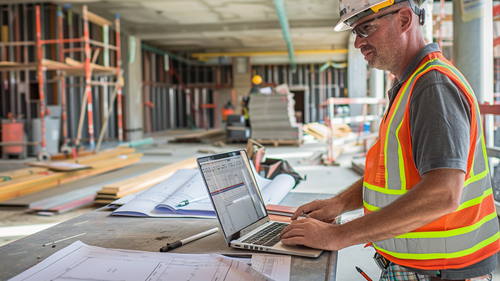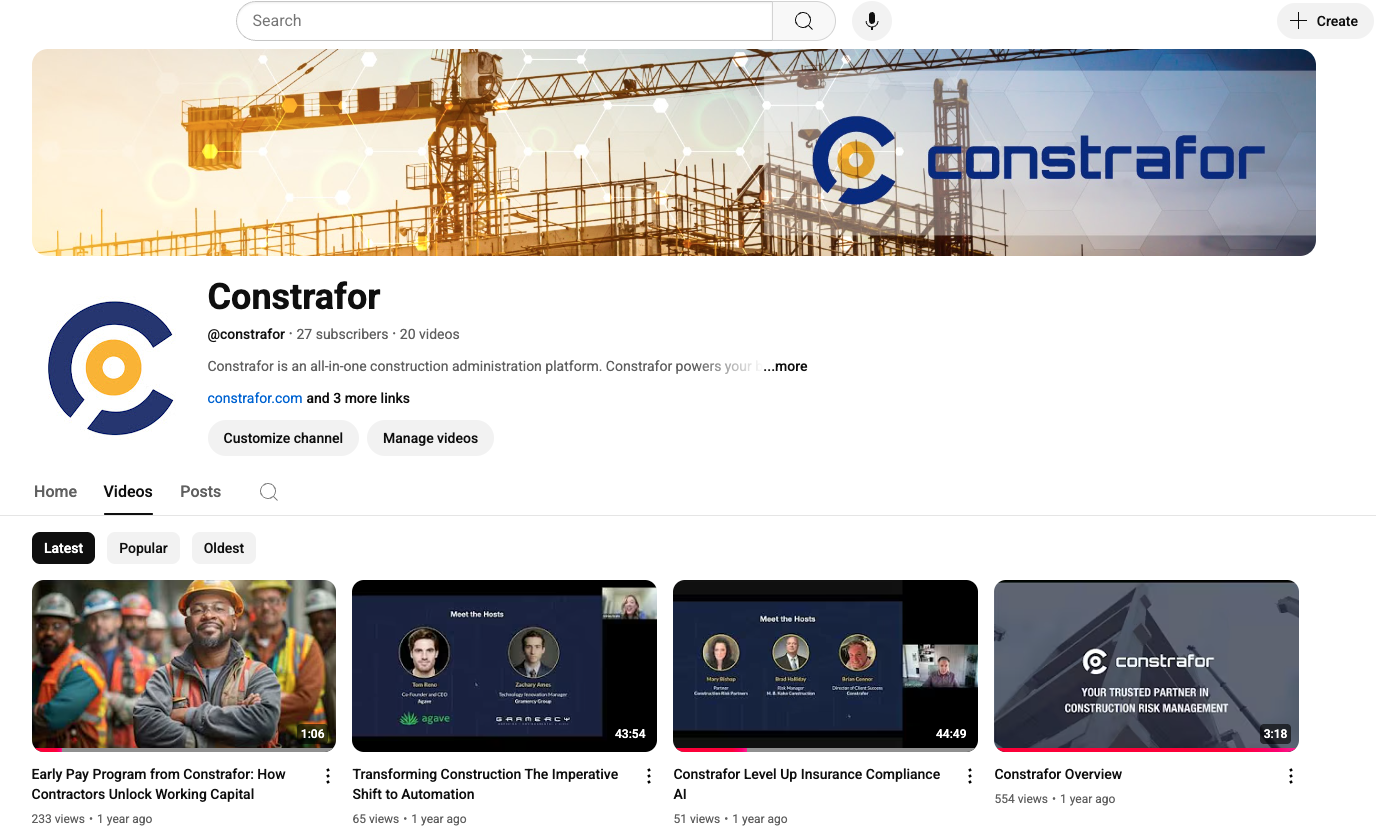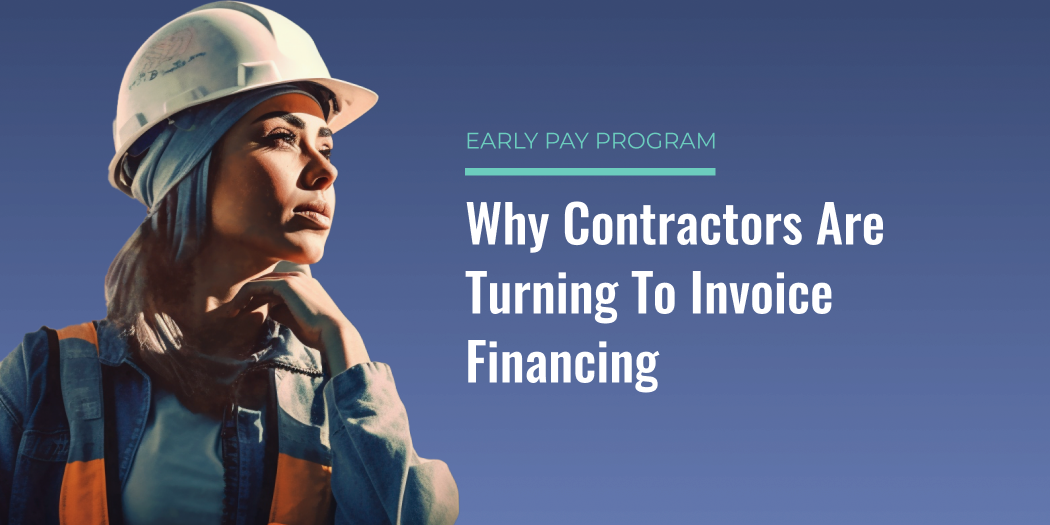Press Play on Growth: Introducing the Constrafor YouTube Channel
In the construction industry, your job to build incredible things from the ground up. You transform blueprints into buildings, turning vision into...
3 min read
Jerad Ferrell
:
Feb 27, 2024 9:36:21 PM

Procurement, a critical cog in the machinery of construction, can make or break project success. When it's efficient, it ensures the timely availability of materials, equipment, and services at the best price, enabling projects to run smoothly. But when procurement is inefficient, it can result in hidden costs that erode profits and extend project timelines.
Inefficiency in procurement doesn't just lead to paying more for materials or services. It can create a domino effect, disturbing the entire project lifecycle. For instance, rising prices can lead to procurement delays, which in turn can extend the project timelines.
According to research, these delays can cause a significant increase in project costs. The reason for this is threefold. First, the project takes more time to complete, increasing labor costs. Second, the longer the project runs, the more overhead costs pile up. Lastly, delays can lead to penalties or even loss of reputation, impacting future business prospects.
While these costs might seem hidden at first, they can significantly impact the bottom line of construction companies. Beyond direct financial implications, they can also lead to resource misallocation, missed opportunities, and strained relationships with clients and suppliers.
Another innovative strategy to enhance procurement efficiency and financial management is leveraging early payment programs. These programs, such as Constrafor's Early Payment Program, allow subcontractors to receive payment for their invoices shortly after approval, significantly reducing the typical industry delay from 83 days down to 1-2 days. This rapid access to funds can be a game-changer for managing cash flow and investing in procurement strategies without the constraint of traditional payment cycles.

Understanding the causes of inefficient procurement is the first step toward mitigating its impact. Unpredictable factors leading to increased raw material costs are a significant contributor. As per Eka, these include fluctuations in the global economy, changes in import-export regulations, natural disasters, and more.
Another cause is supply chain bottlenecks and material shortages. Today's construction materials market is global, and a hiccup in any part of the world can lead to shortages at home. These shortages can delay projects and increase costs as companies scramble to find alternative sources or pay high prices to secure the needed materials.

While some causes of inefficient procurement are beyond a company's control, others can be mitigated with strategic planning and execution. Strategic sourcing, for instance, can help identify and secure the most cost-effective and reliable sources of raw materials.
According to TRACC, this practice can help mitigate the impact of high raw material costs. By establishing long-term relationships with reliable suppliers and negotiating favorable rates, construction companies can ensure a steady supply of materials at predictable prices, reducing the risk of cost overruns.
Another strategy is to prioritize purchases based on the company's exposure to price increases. As McKinsey notes, understanding which purchases are most affected can help companies focus their negotiation efforts and find alternative sources if necessary.
Lastly, budgeting for unforeseen expenses can also help. As suggested by CapsuleCRM, allocating 5-10% of the construction budget for unexpected costs can prevent these from leading to overruns. This practice provides a cushion to absorb unexpected price increases or other unforeseen procurement-related costs.

While mitigating the impact of inefficient procurement is important, companies can also actively work towards improving their procurement efficiency. One proven strategy is negotiating better payment terms with vendors. As per Interface Consulting, more favorable terms can help improve cash flow, reduce financing costs, and provide a buffer against price fluctuations.
Implementing new approaches in supply chain management can also help deal with rising raw material costs. Companies can leverage technology to gain real-time visibility into their supply chains, enabling them to respond quickly to changes and disruptions. This approach not only helps avoid costly delays but also ensures that companies are not paying more than necessary for their materials.
Additionally, companies can improve procurement efficiency by leveraging technology for better process management. Digital tools can streamline procurement processes, reduce errors, and provide valuable data for decision-making. They can also support strategic sourcing efforts by providing insights into supplier performance, market trends, and price fluctuations.
Inefficient procurement can have a surprisingly large impact on the cost and success of construction projects. It's not just about paying more for materials; it's about the hidden costs of project delays, budget overruns, and lost opportunities.
However, construction companies are not powerless in the face of these challenges. By understanding the causes of inefficient procurement and implementing strategies to mitigate its impact, they can significantly improve their project outcomes.
Whether it's through strategic sourcing, better negotiation with vendors, or the use of technology, there are numerous ways to improve procurement efficiency. Each of these strategies not only contributes to minimizing the cost of procurement but also enhances the overall project management efficiency.
In the end, efficient procurement is more than just a cost-saving measure. It's a strategic advantage that can set a construction company apart in a competitive market. It's not just about saving money; it's about delivering projects on time, within budget, and to the satisfaction of clients. That's the true measure of success in the construction industry.

In the construction industry, your job to build incredible things from the ground up. You transform blueprints into buildings, turning vision into...

The construction industry is no stranger to financial challenges. For trade contractors, managing cash flow while juggling payment delays and...

Construction Invoicing Basics Invoice Template Essentials A construction invoice or payment application provides an account of the work completed and...